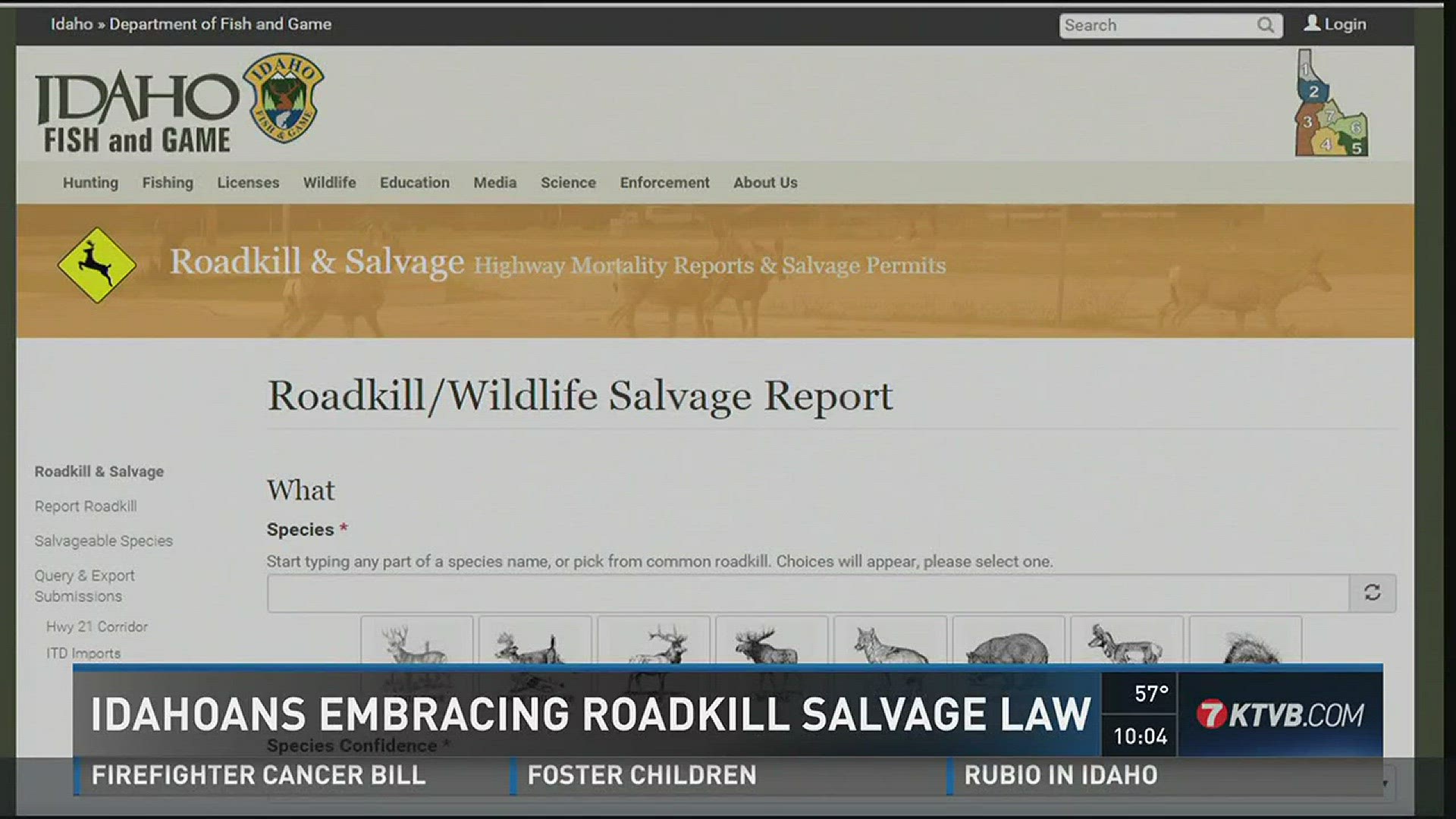BOISE - If you've accidentally hit an animal on the road, have you ever wondered what you can do with it? Idaho has a law that lets people salvage roadkill, as long as they report it to the Idaho Department of Fish and Game.
We are one of several states that has a law like this - and it's very popular in rural Idaho. Fish and Game says so many Idahoans don't want to see the animal go to waste.
"We have a large number of hunters here so a lot of people would actually know what to do with it and wouldn't be intimidated by seeing a dead big game animal on the side of the road," avid hunter Jeanne McFall said.
Not many people know that Idaho lets people salvage those animals on the side of the road.
"They don't have to take the whole animal," Idaho Fish and Game Asst. Chief of Enforcement Blake Phillips told KTVB. "They can just take the parts that are salvageable - whether it be the antlers, the hide or some portion of the meat that they're going to take home and eat."
There has been a roadkill law in place since 2012. Since then, IDFG has recorded almost 5,000 animals in their database that were picked up and salvaged. The Panhandle region in northern Idaho has the highest amount of reports - with almost 2,000 salvages. The Southwest region follows, with about 630 recovered animals.
"Highways bisect a lot of big game migration routes so animals are constantly moving," Phillips added.
If you hit an animal and it dies, you have 24 hours to head to the IDFG website and submit a Roadkill/Wildlife Salvage Report. Within 72 hours, you will receive a salvage permit.
Derek Swander works for a cabinet company in Cascade and drives up and down Idaho 55 for work constantly.
"We probably see anywhere between three to eight deer killed on 55 when we come down," he said.
Swander hasn't been gutsy enough to pick one up yet but because he's also a hunter, he knows what he's supposed to do if he ever does. Many Idahoans who hunt and love game meat think the law is beneficial and hard to abuse.
"We like our meat and don't want to waste it," McFall added. "I think it's just because we're more rural and a lot of people are hunters and we appreciate wildlife."
Experts say drivers' safety is the most important thing when trying to salvage roadkill. They advise being careful with the dead animal, and not picking it up if it is decaying.
"It's not worth getting sick over," Swander said.
If you want to pick roadkill up, Fish and Game and the Idaho Transportation Department say don't stop on busy interstates to do so.
According to Fish and Game's website, only big game animals, upland game animals, upland game birds, furbearers, predatory and unprotected wildlife may be salvaged. Protected nongame, threatened and endangered species, and migratory birds, including waterfowl, may not be possessed or salvaged.
To find out which animals you are allowed to salvage and which you aren't under federal law, view this list.

